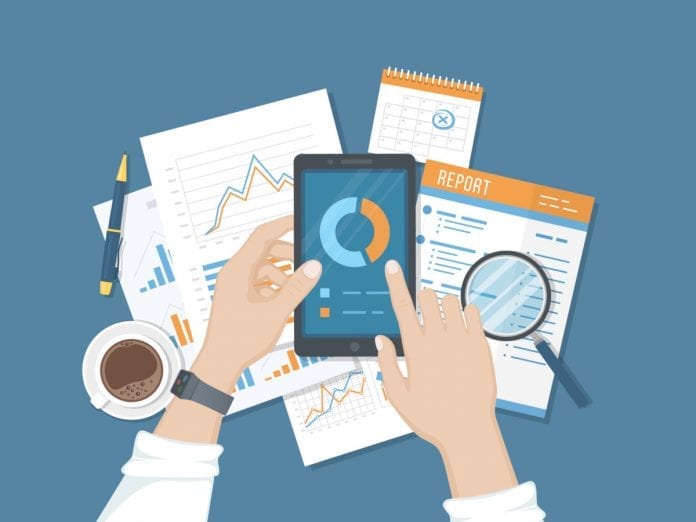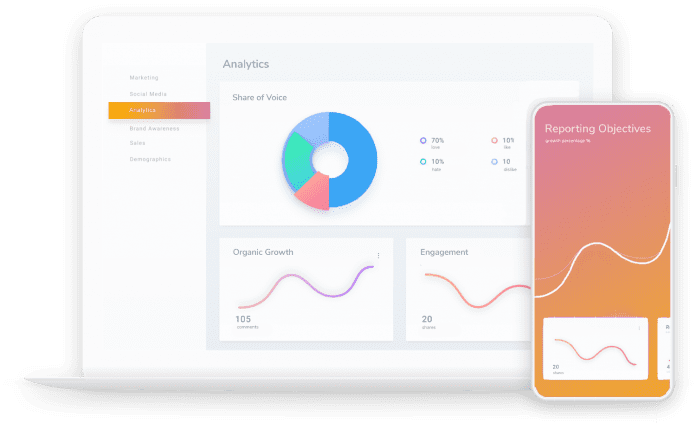Social media has become one of the major factors when it comes to running a modern-day business. Nowadays, it is hard to think of a successful and powerful business that does not have an online presence. You can advertise pretty much anything online – products, campaigns, events, etc. However, the key thing when it comes to this topic is that your posts are ‘seen and heard’. Have you ever wondered how to achieve the productivity of your account and online content? One of the main features of a successful account is considered to be social media reporting. However, it may be a tricky topic, since it is often followed by misconceptions. Even though these false statements do not rely on facts or proven data, they still exist. Moreover, some people even believe in things like ‘You don’t need this reporting at all.’ If you are interested in learning why statements like this are not true, please continue reading the following article, since it will hopefully provide you with some helpful information.
Before we move on to the statements, we should first understand the term itself. So, is social media reporting a buzzword, or is it actually a valid term that should concern each and every marketer? We believe it is the second option. It can be defined as a ‘concrete, data-driven way of showing what you’ve accomplished.’ Furthermore, it is through this report that you learn about what your target audience likes and views most. Also, you get to analyze the response of the audience and keep track of what you did right or wrong. So, in this way you find out exactly how to organize your future posts. Nevertheless, many managers can’t see any potential in doing things this way. What is more, they often keep repeating some myths about it and underestimating its power. What are the 3 most common myths about social media reporting?
You do not need social media reporting

This is one of the most hurtful myths that any marketer could spread further. Not only do you need a social media reporting tool for checking your statistics from time to time, but also to analyze and optimize your performance on a daily basis and apply changes to your strategy in real-time. Also, it can justify the direction you are taking in terms of your content and let you change it if not delivering as expected. If your activities do not live up to any hopes or KPIs, it is better to know about it in advance instead of burning money and finding out way too late that your ideas did not work out. On top of that, this report exists so that you don’t wander in the wrong direction. Not only does it tell you what was great about your work, but it also shows you what it should be worked on in the future.
Social media reporting needs special and long onboarding

Of course, understanding each and every social media growth report takes time and some knowledge, but once you recognize all of the Key Performance Indicators and get familiar with social media analytics metrics, it is easier to get on board with any social media reporting tool. It is nothing special or particularly long about this step – with every report, you will be able to recognize the needs quicker and easier to take action in the most effective way. Onboarding may not take a matter of minutes, but it won’t take weeks either – even if you are not an analytical pro. In fact, you don’t have to be an analytical pro at all in order to understand it. Also, it is all about practice. Even though it might seem overwhelming at the beginning, once you realize the potential behind the whole thing, you will get motivated to carry on. Moreover, it gets easier after a few times. Making some logical conclusions does not have to be difficult, especially if you work for many clients and need to prepare a lot of reports regularly.
Social media reporting is expensive and imprecise

This is another hurtful statement that is often passed from one person to another but does not hit close to the truth. Some social media reporting tools are free, while for other more advanced ones you may need to pay a small amount – but this is likely to pay off very quickly. What is more, you should consider it as an investment, not as an expense. Ultimately, purchasing better tools will probably result in increasing your team’s productivity and clients’ satisfaction. It matters a lot in terms of improving the quality of services and being competitive. Clients are more likely to stay with a company that provides clear and transparent, easy to the eye reports that quickly explain the state of their social media communication managed by your agency. So, bearing in mind that you can buy some peace of mind and automate this tedious task, as preparing reports so often is, spending a few dollars on it does not sound that bad.
Is any social media reporting really going to deliver you precise results? Yes! Some statistics may seem to be hidden or unclear in the native features of certain platforms. However, with advanced tools like NapoleonCat.com, you can untangle those statistics and analyze them like a pro, taking care of the right optimization of your strategy. So the results are not only precise but are also more advanced than in social media analytics available directly on social media channels.
To wrap-up

Social media reporting was not invented to make managers’ lives more difficult – quite the contrary. In this way, you can optimize many processes that you will never look back. While doing all those tasks manually can be time-consuming, it is much less so when you use a reliable, trusted social media reporting tool. Many of them, including the aforementioned NapoleonCat, give you the chance to try them out during a free trial, so you should definitely take advantage of this ability and test out a few tools in order to choose the one that best fits your needs. The whole process can, in fact, be real fun if you get prepared in the right way. Additionally, it is always better to rely on a valid and reliable piece of information, like numbers and data, instead of guessing and assuming. In that way you will be sure that you are actually dealing with the facts and that there is little room for mistakes. Good luck!









